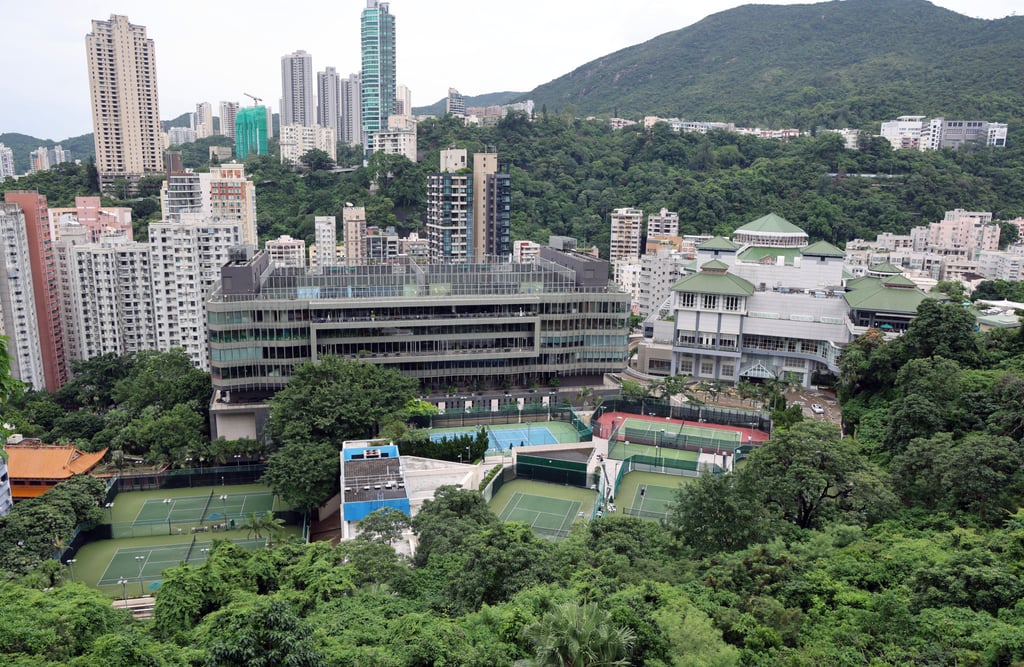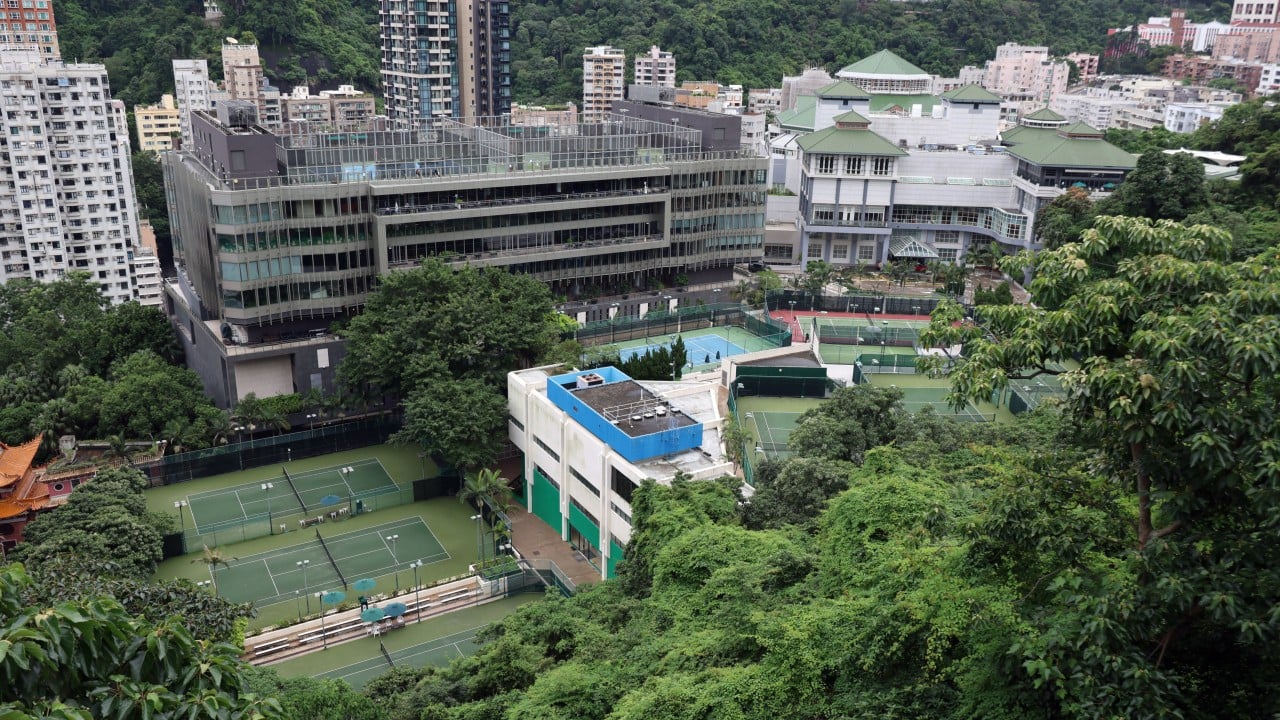The Hong Kong Jockey Club is not required to pay a land premium for redeveloping a sports complex into a residential project in a prime district, the government has said amid concerns the plan will set a precedent for the non-profit body to generate revenue through property.
The club’s planned move into the property market has raised eyebrows, with lawmakers calling for greater transparency over the intended use of the flats that will be built at 48 Shan Kwong Road in upmarket Happy Valley while questioning how profits will be managed.
The Development Bureau on Wednesday told the Post that the government had no role to play in the redevelopment plan as the prime site was bought by the club through public auction in the “early years”. The lease did not have any restrictions on uses and the site had also been rezoned as residential years ago, it said.
“It means the Jockey Club is not required to apply for modifying its lease or pay a land premium for developing the site for residential use,” a spokeswoman said.
“Whether or when to develop the site for residential purposes will be up to the land owner, the Jockey Club, to decide.”
It is understood that the site was leased to the club in 1930 at an annual rent of HK$558 (US$72) for 75 years, with renewal in 2005 increasing the rent to HK$84,600 per year.
The site was occupied by two stable blocks in the 1930s and rezoned for residential purposes in 1981. It has been used as a temporary recreational facility for club members since 1988.
Perched on a steep slope, the complex is home to tennis and squash courts, a golf simulation room, fitness studios and other recreational facilities.
As a non-profit organisation, they should build affordable housing or open up the recreational facilities to the public
The Buildings Department approved the club’s plan back in June, allowing the construction of three 21-storey residential blocks offering a total gross floor area of around 485,900 sq ft. It will also include a clubhouse over two floors for residents.
The club said on Wednesday that it was building a “residential-cum-sports complex” after the Town Planning Board asked the organisation to adapt the site for its zoned residential use.
Brian Wong Shiu-hung, a researcher with NGO Liber Research Community, said he was concerned the case would set a precedent for the club to make a profit through property.
“This is an issue left behind by history. We don’t know how many more plots of land they own under similar terms,” he said.
“The government has leased the land to them at a very favourable price. It is not reasonable for them to profit fully from it.
“Legally they are allowed to build residences, but as a non-profit organisation, they should build affordable housing or open up the recreational facilities to the public as part of their moral responsibility.”
He also criticised the government for failing to tighten the terms of the lease when the contract with the club was extended in 2005, citing outdated terms that only governed the use of the site as stables.
Lawmaker Doreen Kong Yuk-foon said the club should not be opaque about the development plans and the purpose of the homes.
“The public will be concerned that the club has become a property developer, without knowing whether the housing would be sold or used as dormitory accommodation,” she told the Post.
“If the flats are sold, what do they do with the profits? Will they donate any back to society like their other earnings?”
Lawmaker Andrew Lam Siu-lo urged the club to clarify the uses of the buildings to dispel concerns.
“Only the Jockey Club knows why and what kind of residences they are building. It is important to tell the public the direction the club is heading in,” he said.
“The public might wonder if the club is facing financial difficulties and is looking for new sources of revenue.”

The club has periodically sought approval from the Town Planning Board to renew its use for recreation, with the green light last given in March, allowing it to run until April 2027.
The club’s application, filed in January, revealed it had revisited the project’s mix of flats and conducted a business review following the property market downturn in the fourth quarter of 2023.
The club hoped to finalise its town planning application by the end of 2025, while demolition would only take place in the second quarter of 2027 as the steep slope posed constraints and challenges.
The new residential complex would take at least five years to build, it said.
On Wednesday, a club spokesman confirmed it had been granted a temporary planning permit to use the site as a sports complex since the 1980s.
It said the Town Planning Board had recently indicated the club should “actively implement” the zoned use of the site as residential, as originally designated.
To secure the extension of the temporary planning permit this year, the club had “committed to redevelop the site into a residential cum sports complex, subject to further studies to be undertaken”.
Veteran surveyor Lau Chun-kong noted the lease terms did not include a clause to pay land premiums.
One of the oldest institutions in the city, the club is the city’s sole gambling operator and pays the government duty, profits tax and lottery fund contributions, while also giving back through charity donations.
The club gave HK$35.9 billion to the community in the year 2022-23.


